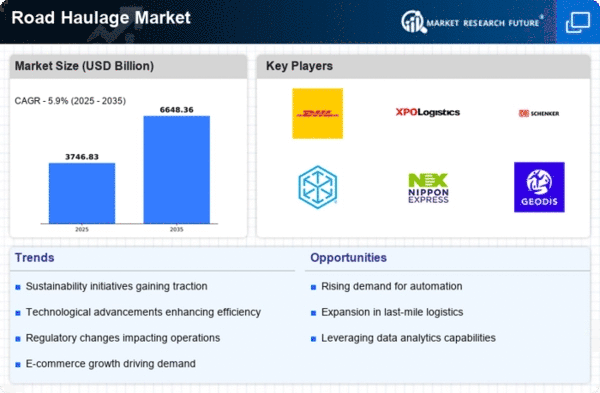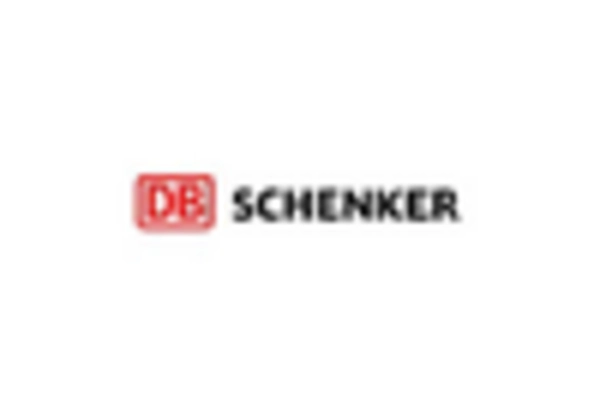Market Analysis
In-depth Analysis of Road Haulage Market Industry Landscape
Governments worldwide are urging automakers to reduce carbon emissions from diesel fuel combustion and combat greenhouse gas emissions. This push has led governments to invest in the development of Electric Vehicles (EVs), particularly Battery Electric Vehicles (BEVs). To encourage the growth of the electric light commercial vehicle market, governments are offering incentives and schemes for BEV production. Additionally, global governments are promoting the adoption of electric mobility through incentives, tax benefits, and toll tax exemptions. For instance, India's government plans to reduce the Goods & Service Tax (GST) on EVs from 12% to 5% to accelerate their adoption.
Furthermore, governments are providing tax exemptions on loans for EV purchases, with approximately USD 2,101.5 in tax exemption cited as an example. South Korea's government has committed to offering USD 900 million in tax exemptions and subsidies for the development and purchase of fuel cells and electric vehicles. This increasing government support, including subsidies, tax benefits, and incentives, is a significant factor driving the demand for light commercial vehicles.
The global electric light commercial vehicle market is witnessing substantial growth, driven by factors such as advancements in automotive technology and the expansion of the e-commerce industry. However, the market may face challenges due to strict emission standards. On the positive side, the growth is further fueled by government initiatives promoting electric mobility.
The automotive sector has experienced significant growth, with technological advancements leading to the introduction of vehicles featuring efficient fuel consumption technology. Major automakers like Tata and Ashok Leyland have been actively developing and launching advanced commercial vehicles globally. For instance, Ashok Leyland introduced the Dost Lite Electric vehicle with a payload capacity of 1.25 tonnes and a range of up to 120 km on a single charge. Nissan also contributed to the market with the Townstar van, available in both fully electric and petrol engine options.
Governments worldwide are actively encouraging the automotive industry to reduce carbon emissions, resulting in increased investments in Electric Vehicles (EVs). Governments are offering incentives, schemes, and tax benefits for the production and purchase of Battery Electric Vehicles (BEVs). This support is expected to drive the growth of the electric light commercial vehicle market.
The global EV market is further stimulated by government support through subsidies, tax benefits, and incentives to boost the adoption of electric mobility. For example, the Indian government plans to reduce the Goods & Service Tax (GST) on EVs from 12% to 5%, while South Korea is offering substantial tax exemptions and subsidies for fuel cells and electric vehicle development and purchase. This growing government backing is a crucial factor contributing to the rising demand for light commercial vehicles in the electric mobility sector.


















Leave a Comment